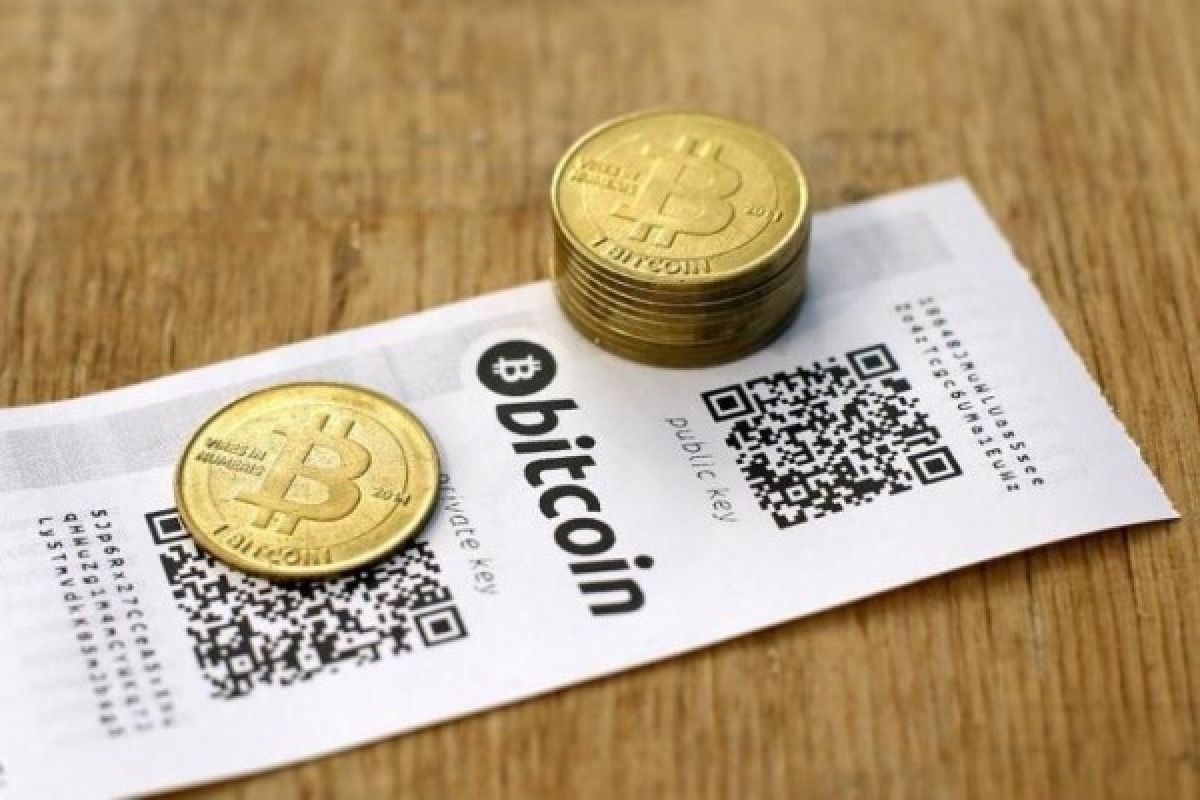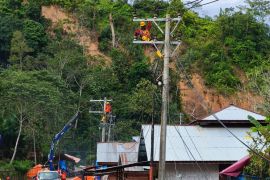"We have disapproved all Bitcoin transactions in Indonesia. Hence, we will fine and give penalty to the financial services providers if they are still found to be using the virtual currency," Enny Panggabean, the central bank`s director said.Jakarta (ANTARA News) - Forget a while about a safe and stable investment, now some people worldwide are more attracted to trade and invest a digital currency Bitcoin.
Launched in 2009 by a pseudonym computer programmer, Satoshi Nakamoto, Bitcoin offers a new model of transaction, without requiring any bank accounts or information on identity, as well as other legal documents in order to start purchasing or trading the digital currency.
Apart from being anonymous, the Bitcoin traders are also not controlled by any authorities, namely the Central Bank or the Financial Services Authority. The virtual "coin" is entirely determined only by the supply and the demand performed inside the digital market, which is run by some computer codes in the Blokchain software.
The software, in short, will record all transactions using Bitcoins and instantly reveal its actual value, whenever the virtual coin is being exchanged to certain existing currency.
In crisis-hit Venezuela, thousands have performed transactions using the virtual currency for purchasing any luxuries, even beer.
After years of protests and strikes, inflation in Venezuela has surged to the highest rate ever by 4,115 percent, and as the result, the country`s currency Bolivar is no longer valuable.
In order to survive, most Venezuelans then turned to Bitcoin, not only for purchasing products but also for saving.
Not only in Venezuela, people in other conflict-hit nations, such as Zimbabwe and Ukraine, also follow the trend to purchase the virtual coin for investment.
However, some countries, such as Vietnam, Ecuador, China, Thailand, Kyrgyzstan, Russia, and Indonesia, have chosen to ban all transactions using Bitcoin, mainly because of its highly speculative rate, which is claimed to hurt the financial stability.
In mid-December this year, the Central Bank of Indonesia had announced all trades using the virtual coin to be illegal.
"We have disapproved all Bitcoin transactions in Indonesia. Hence, we will fine and give penalty to the financial services providers if they are still found to be using the virtual currency," Enny Panggabean, the central bank`s director executive of policy and payment system supervision, stated in Jakarta on Friday (Dec 15).
According to the Indonesian authority, Bitcoin has not only failed to provide a secure and safe investment but has also been prone to be used as a platform for crimes, such as money laundering.
The virtual Bitcoin, moreover, could also disrupt the financial stability, because the digital currency has a steep rate fluctuation.
The single virtual coin worth less than US$1 was first launched in 2009, but in 2013, the value surged to $92 and continued to grow by 819 percent in 2014, with $846 per coin.
The Bitcoin rate in earlier this year was worth $977, and the number has significantly risen to $16.747 per coin, and now it was corrected to $14.615, or equal to Rp197.3 million.
How it works?
In an article published online by the New York Magazine (nymag), Joy Crane and Max Read explained that Bitcoin is an anonymous digital currency traded online. Bitcoin went anonymously online without leaving any traces, differing itself from other form of digital payments, such as PayPal.
Despite being anonymous, Bitcoin, in fact, is still able to be exchanged into an actual currency, such as US Dollar or Indonesian Rupiah. Hence, as a result, people are now targeting Bitcoin for saving or investment.
Crane and Read, in the article titled "Do You Really Know What Bitcoin Is? A Guide for the Confused," said that Bitcoin works "like a safety-deposit box without being controlled by a bank (or other government institutions); in still others, it is a tradable financial asset like a stock or bond."
Although being anonymous, all Bitcoin transactions are recorded by a program called "Blockchain," which is "nearly impossible to be forged (by the hackers)."
The traders, or commonly called as miners, will race to store all recent transactions into a "block" inside the blockchain. Miners encrypt codes of the transactions in order to earn a verified block as a reward.
Once the first miner has verified the block, they will earn a certain number of Bitcoin.
As a cryptocurrency, Bitcoin is also able to be cashed out into actual money. The only instant step is to use the Coinbase app and connect the bank account or the PayPal account. Apart from Coinbase, some people also use LocalBitcoins. The app would help connect the Bitcoin buyers and sellers.
Risk or uncertainty?
Although the government now has banned Bitcoin, the cryptocurrency, in fact, still could work underground without being detected by the authorities. Therefore, for anyone considering to invest in the virtual coin, the only question is whether Bitcoin would be a wise choice for saving or investment.
If we only look at its lucrative return, Bitcoin will rank first as the most-wanted investment product. However, after following its fluctuation rate in the market, we should re-calculate our risk in investing in Bitcoin.
Frank Hyneman Knight, an American economist, and one of the founders of the Chicago School, may provide an answer in his classic and iconic work, "Risk, Uncertainty, and Profit" (1920).
Knight has distinguished that in actual economic transaction, all calculable and measurable future events are risks, while the incalculable and indefinite ones are uncertainties.
Risk, in Knight`s framework, implies "certainty" in the economy transaction. However, the incalculable future events, or unintended consequences on transaction, should be understood as part of the uncertainty.
In term of Bitcoin, now we should ask whether it is risk or uncertainty? Some shares and currencies at the stock market also have fluctuating rates, mainly when the world is hit by a conflict or crisis. However, the rates of stocks and currencies are still predictable and controlled (by the government or other world financial bodies).
On the other hand, Bitcoin, which also has a steep fluctuate rate, is not being controlled by any authorities. The virtual coin has no "fixed" outlook on its future rate. Most economists may have a "positive" outlook about the virtual coin, but some people also concern that "one day," the cryptocurrency value will drop to $0.
Hence, for those who are still seeking a safe and stable investment, Bitcoin may be not a wise option. However, for anyone who is thrilled to "gamble," Bitcoin may offer them million-dollar return.
(T. KR-GNT/INE)
EDITED BY INE
(T.KR-GNT/A/KR-BSR/A014)
Reporter: Genta Tenri Mawangi
Editor: Heru Purwanto
Copyright © ANTARA 2017












